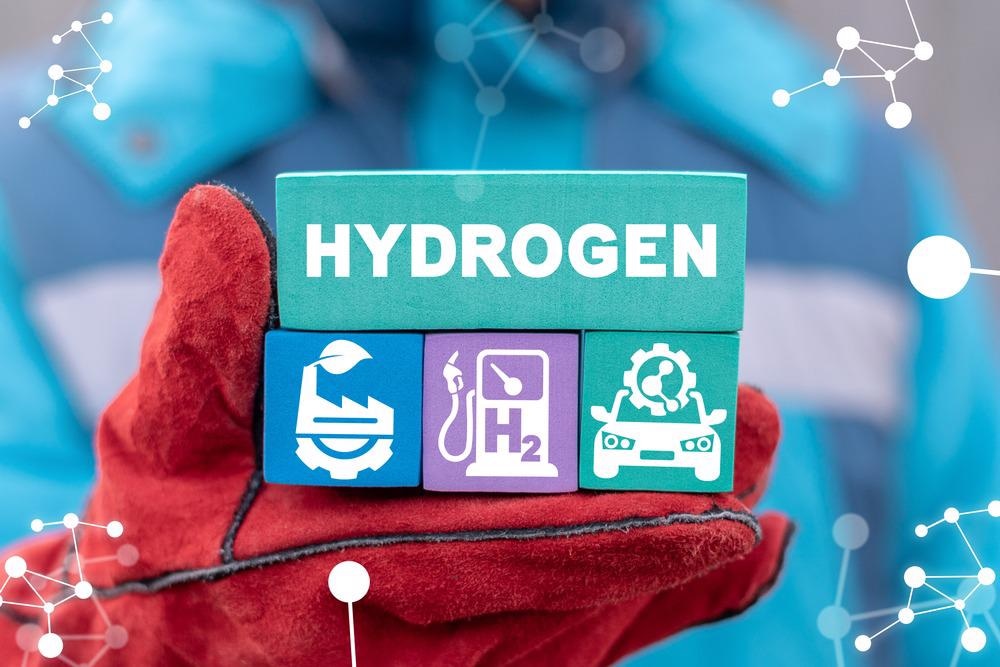A team of researchers from Japan has provided an overview of the recent advances, challenges, and future perspectives on solar-driven hydrogen production, a key technology being developed to move away from a reliance on fossil fuels. The study has been published in the journal ACS Energy Letters.

Study: Solar-Driven Hydrogen Production: Recent Advances, Challenges, and Future Perspectives. Image Credit: Panchenko Vladimir/Shutterstock.com
Achieving Sustainable Hydrogen Production
The damaging effects of using fossil fuels to meet energy and fuel demands are well-documented. Carbon dioxide emissions are a key driver of climate change, and pollution from the petrochemical industry, amongst other industrial sectors, is causing massive environmental damage on a scale not seen in human history before. Moreover, these resources are finite and non-renewable, meaning that at some point in the near future there may well be an energy crisis as resources are depleted.
Renewable energy has been widely proposed as a solution to growing environmental, economic, and social issues caused by the over-reliance on fossil fuels. Solar power, in particular, has gained significant research focus due to the limitless and inexhaustible potential of solar energy to meet the world’s power and fuel demands.
Amongst technologies under development, solar-powered hydrogen production has gained traction for meeting future demands as fossil fuels are phased out, filling the potential energy gap this will cause.
Hydrogen is a versatile energy carrier, but currently, a significant proportion of commercially utilized hydrogen still comes from non-renewable sources such as natural gas production, with these processes responsible for around 2% of the total global greenhouse gas emissions, or 820 million tons of CO2 annually. Hydrogen is particularly attractive due to its high gravimetric energy density, negligible greenhouse gas emissions, and its capability to be integrated into already existing industrial infrastructure and conventional power plants.
Hydrogen-powered applications include fuel cell vehicles, domestic fuel cells, hydrogen-powered steelmaking, and power generation turbines. Realizing these applications on a globalized industrial scale is a key research and development aim to move the world away from fossil fuels and toward a zero-carbon future, especially with integrated solar-power generation systems to manufacture green hydrogen and replace hydrocarbons with water as a feedstock.
Indeed, many nations have, in recent years, launched projects and initiated policies to increase the share of hydrogen in their energy mix. In 2017, Japan established the Basic Hydrogen Strategy and renewed its Strategic Roadmap for Hydrogen and Fuel Cells in 2019. In 2020, the European Commission published its hydrogen strategy for a climate-neutral Europe.
Despite the increasing political will to move toward a hydrogen-energy future, over 90% of the hydrogen produced globally still comes from processes such as steam methane reforming and coal gasification. Moreover, this means that the potential for mitigating carbon emissions using conventional hydrogen production means is negligible or even negative, facilitating the need for rapidly and substantially increasing the production of green hydrogen.
The Study: Exploring Current and Future Perspectives on Solar-Powered Hydrogen Production
Writing in the journal ACS Energy Letters, the team of Japanese researchers has investigated current technological developments, challenges in the field, and future perspectives on the production of green hydrogen using solar power. The research has provided a comprehensive literature review, with over one hundred studies analyzed.
The field of solar-powered hydrogen generation has shown significant progress in the last five decades, with rapid growth in papers published on the subject since 2005 noted by the authors. They have pointed out that the acceleration of the application and deployment of solar hydrogen power technologies has undergone rapid progress in recent years in terms of performance, durability, and cost.
There are six technological routes for solar-powered hydrogen manufacture: photovoltaic-electrochemical water splitting, photoelectrochemical water splitting, photothermal catalytic hydrogen production from hydrocarbon fossil fuels, solar thermochemical water splitting, photocatalytic water splitting, and photobiological hydrogen production. The authors have noted a lack of comprehensive and comparative studies on the techno-economic analysis of all six technologies.
Therefore, the aim of the review study was to provide a comprehensive review of technologies for solar-driven hydrogen production. The paper includes an overview of the six production routes, with current state-of-the-art approaches and systems highlighted. The six routes are comprehensively compared and evaluated on the basis of their efficiency, environmental impact, cost, and durability.
Finally, based on their statistical analysis of current technologies and approaches for solar-driven hydrogen production, the authors have attempted to elucidate the challenges and future research perspectives for further development in the field of solar energy and fuel production.
The authors have identified that some of the factors which influence the roadmap and future development of solar hydrogen production include the cost of fossil fuels (especially methane), the capacity of different nations, political influences, market demand for hydrogen, the storage and transportation of hydrogen, and the development of competing resources such as wind and nuclear energy. However, the authors have stated that solar hydrogen production will likely be a key element of the future clean, affordable, and sustainable energy mix.
Further Reading
Song, H et al. (2022) Solar-Driven Hydrogen Production: Recent Advances, Challenges, and Future Perspectives [online] ACS Energy Lett. 7 pp. 1043-1065 | pubs.acs.org. Available at: https://pubs.acs.org/doi/10.1021/acsenergylett.1c02591
Disclaimer: The views expressed here are those of the author expressed in their private capacity and do not necessarily represent the views of AZoM.com Limited T/A AZoNetwork the owner and operator of this website. This disclaimer forms part of the Terms and conditions of use of this website.